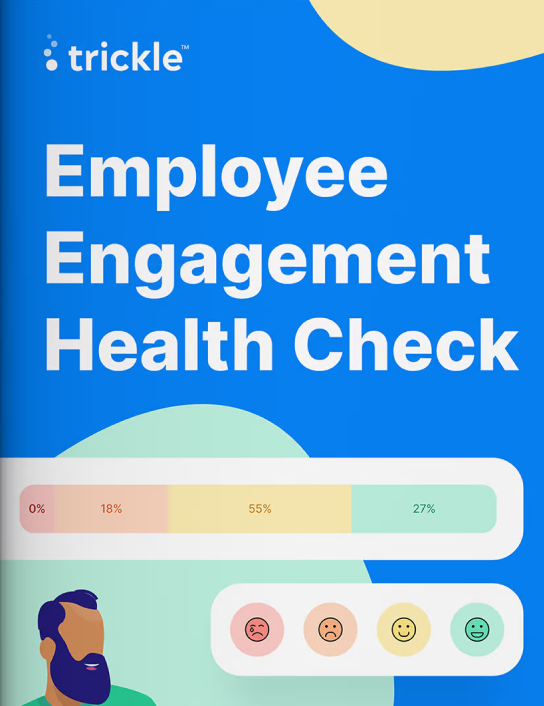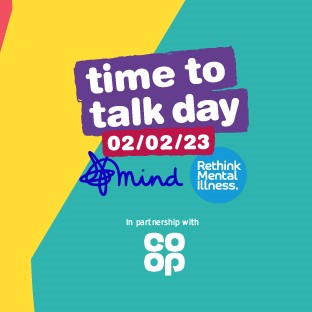How well does your company engage its employees?
Take your health check and find out.


Just as we look after our bodies, it’s also important we look after our minds. One in four of us experience mental health issues each year — so it’s vital that organisations work towards removing any stigma associated with these issues to help their employees live a healthy and happy life.
While there is not one set way to talk about mental health, these are our tips on how to start the conversation!
Time to Talk Day run by the charities Mind and Rethink Mental Illness, in partnership with the Co-op, was created to encourage friends, families, communities and workplaces to start a conversation about mental health.
By opening up conversations about mental health, we can help care for ourselves and those around us. Time to Talk Day gives a point of focus to the nation, creating a supportive community for everyone to talk openly about their own mental health issues and be empowered to seek help.
From planning a community event, hosting a coffee morning in the office or just checking in with a friend, it’s really easy to take part in Time to Talk Day. There’s some ideas and inspiration here.
Of course, while days like this are a great help, it’s important to have a fully considered approach to mental health — especially in the workplace.
Time to Talk Day is the perfect time for organisations to take a holistic look at their employee mental health offering and how they can further adapt to help their staff deal with mental health issues.
Talking about mental health is important all year round, and Time to Talk Day can be a catalyst for that — encouraging employees to speak out about any concerns and seek help internally or externally.
Employers and management can help with this by creating a supportive environment where employees feel comfortable talking about their mental health.
This could be as simple as regular non-work-related check-ins between employees and their managers, focused purely on wellbeing. Or a dedicated hour each week for staff to take a break and have some time for themselves. How about monthly pizza parties to lift staff morale and encourage more interaction and communication? This can be especially beneficial if the office is still hybrid or remote working.
The best way to find out what would work for your employees is to use an employee engagement tool like Trickle, where staff can anonymously raise issues, share ideas and work on outcomes, together.
To ensure your employees feel safe, accepted, and respected, it’s fundamental to create a psychologically safe workplace environment where people feel at ease to speak up and be heard. It’s the first step at making sure staff are comfortable enough to highlight problems — whether they are workplace or personal issues.
Not only can Trickle help staff share ideas about the mental health initiatives that would suit them best, it also has a number of other features that can help encourage conversations in the workplace.

There’s no ‘one way fits all’ when talking to someone about their mental health issues. Whether it’s a friend, family member or colleague, here are some helpful tips you can use to approach the problem:
It’s clear to see how beneficial it is to focus on mental health — both inside and out the workplace. If you or someone you know needs any help, remember to visit timetotalk.co.uk. And if you’re open to implementing an employee wellbeing tool, why not book a 30 minute demo with one of our friendly team?